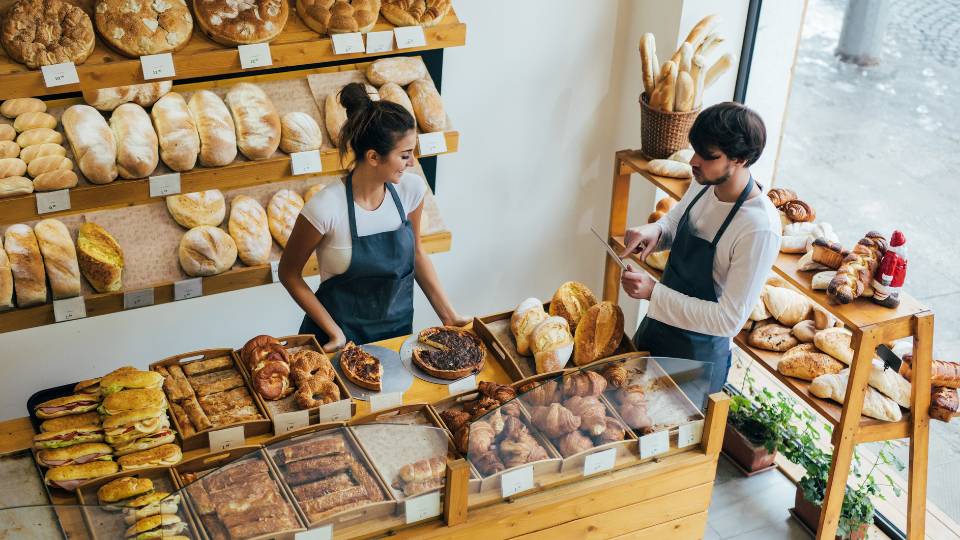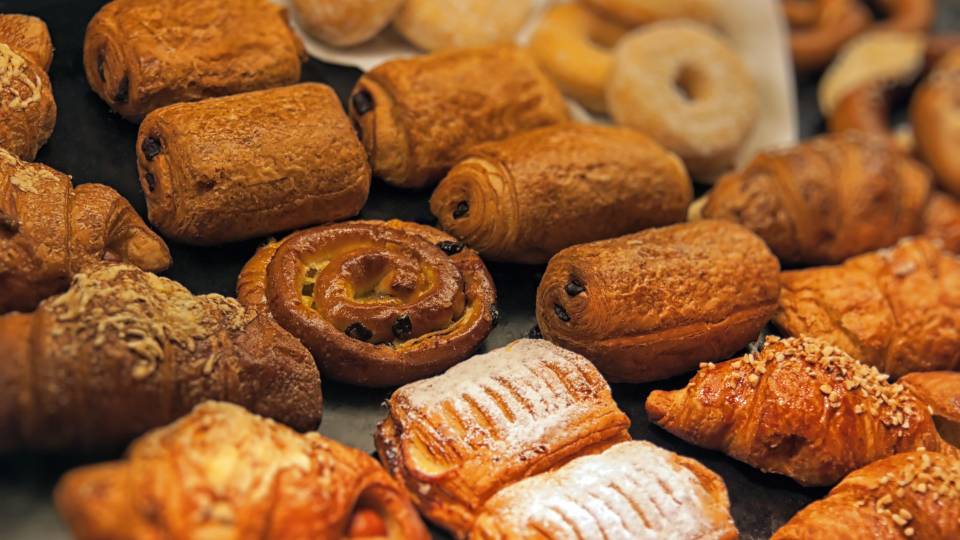
Sustainability is a growing concern with consumers, so zero-waste baking has become more important than ever to stay competitive!
This not only benefits the environment but can also save money and boost customer loyalty.
This blog explores all the practical tips and tricks you need to help your bakery finally go zero-waste!
Table of Contents
- Reducing Food Waste with Zero Waste Baking
- Smart Ingredient Sourcing
- Repurposing Leftover Ingredients
- Upcycling for Sustainability
- Engaging Your Customers
- Conclusion
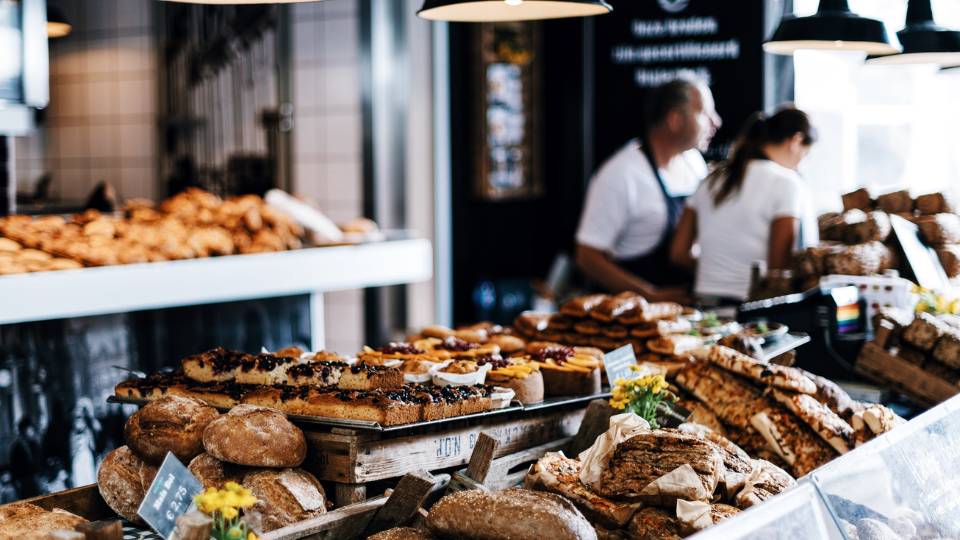
Reducing Food Waste with Zero Waste Baking
Zero-waste baking starts with a mindful approach to planning your menu and managing your inventory.
By designing smaller, seasonal menus, bakeries can minimise the risk of leftover goods going to waste.
It’s all about reimagining your practices to not only tantalise the taste buds of the British public, but also to respect the resources that go into crafting each delectable delight your bakery is producing.
Mindful Menu Planning
Menu planning in not only running a successful business, but also an essential part of going zero-waste.
Designing smaller, seasonal menus not only uses the best ingredients and keeps customers interested, but also minimises the risk of leftover goods expiring on the shelves.
Focus on a smaller range of signature treats that your customers love.
You can look at your historical data to get insight into what products sell well and which tend to be thrown away, and you can adjust your menu to reflect the quantity of ingredients and products you purchase and create.
If you’re a new bakery, consider doing market research in the local area by questioning locals on what types of bakery products they tend to buy, or running a social media campaign with an online form – you could even incentivise people to fill out the form with vouchers for money off or free products when they visit your store.
Mastering FIFO
Embracing the “First In, First Out” (FIFO) method ensures that ingredients are used before their expiry dates, while regular inventory checks prevent over-ordering.
If you’re running a bakery, you can guarantee that most days are long, stressful and busy – we get it!
The FIFO method means that you can reduce wasted products without having to add any lengthy or drawn-out processes.
In your pantry or storage facility, line your shelves with flour, sugar, spices and fruit as normal, but ensure that everything is labelled accurately with their expiry date.
Then make sure products that have been purchased or created most recently are put towards the back, so that the products or ingredients that are likely to go off first are used up or sold first.
The Power of Inventory Checks
It’s easy for the humble inventory check to be overlooked!
Possibly the most mundane task you or your staff will undertake, unfortunately it’s very important to ensure that you’re reducing your waste as much as possible.
Regularly inventory checks mean that you’re much less likely to over-order stock when you already have it in, which is one of the leading causes of food waste.
Not only this, but if in inventory you can see there’s a particular type of ingredient that’s about to expire, you can make sure that you use it in a new product.
For example, if you’ve ordered a crate of apples that are about to go off, you could whip up some apple turnovers for customers the next day which means they don’t go to waste!
Zero-waste baking isn’t just a trend, but it’s a commitment to increasing sustainability for the planet and having fewer negative consequences on those around us.
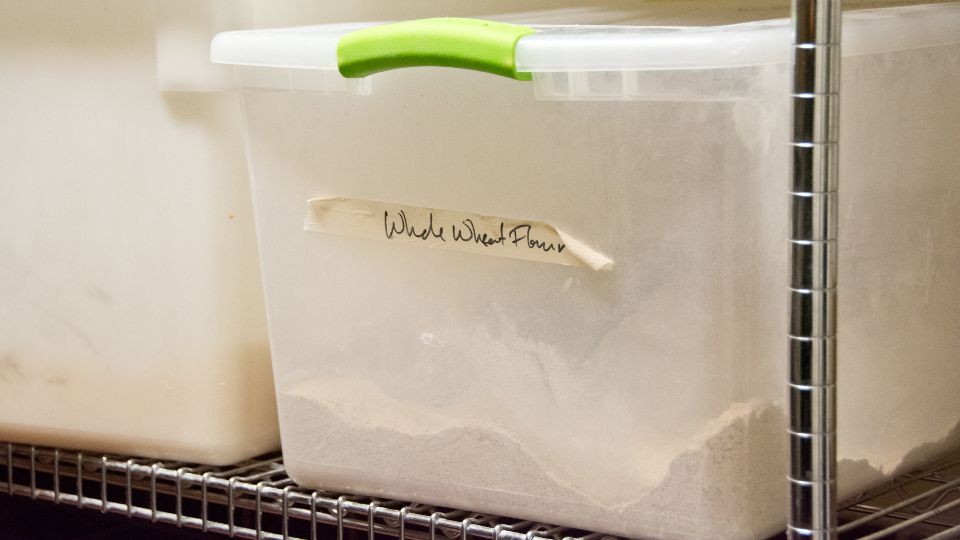
Smart Ingredient Sourcing
Let’s talk about how to source ingredients in a much smarter way so your bakery can move closer to zero-waste!
Want to read more about zero waste ideas? Check out our blog of helpful tips and tricks!
Embracing Local and Seasonal
The consumer’s need for fresh ingredients has meant that bakeries and other food providers have had to source fruit, vegetables and other elements from all over the world.
However, most know that the price of importing ingredients has extremely negative effects on the environment, and with it a cost to local suppliers of ingredients like greengrocers and farms.
By sourcing ingredients locally and seasonally, bakeries not only reduce the carbon footprint associated with transportation but also create good relationships with the local community.
Bulk Buying for Sustainability
Now in an age where convenience, speed and accessibility trumps most other things – single serving packets and individually wrapped goods have become the norm.
For zero-waste baking, it’s time to challenge the status quo and mix things up!
Bulk buying is a great alternative that is practical and planet-friendly!
Store all of your ingredients in large glass or plastic containers with individual scoops so it’s easier to handle.
The best part? Buying in bulk saves you money!
Reusable Containers
In a world completely used to disposable, takeaway and ‘on-the-go’ culture, takeaway orders from bakeries are often packaged up in layers of plastic, paper and styrofoam.
For zero-waste, it’s much better to take up reusable containers or other eco-friendly methods of transporting purchased products.
Some bakeries incentivise customers to bring reusable containers like bags, boxed or coffee cups for the products they purchase at the bakery with discounts or special offers.
A great marketing hack is purchasing these products and having them branded with your logo and information, so word gets out about your zero-waste bakery just by consumers using your zero-waste, reusable products.
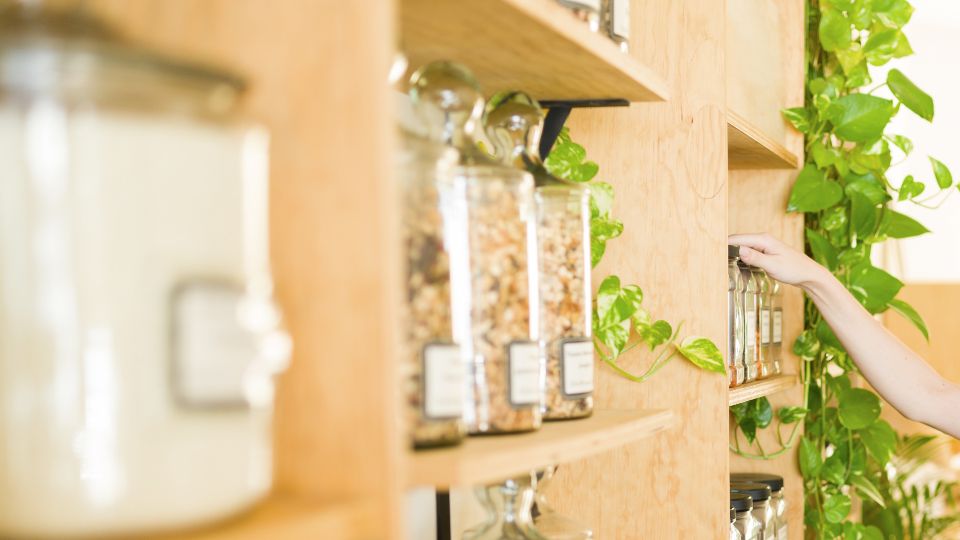
Repurposing Leftover Ingredients
As a bakery, transforming something out of nothing means you’re already incredibly creative!
By going zero-waste, you can use that creativity to fantastic use.
By transforming leftover dough scraps into treats, or reviving overripened fruit into jams and compotes, your bakery is embracing the art of upcycling!
Let’s talk more about the methods you can use to increase your sustainability and get closer to zero-waste:
Transforming Leftover Dough
Try and use your leftover dough from pies, pastries and bread to create smaller, novelty items.
From crunchy cookies, to savoury breadsticks, each item you create is more money in your pocket and less waste negatively impacting the planet.
Reviving Overripe Fruit
Use bruised, overripe, or fruit nearing its expiry for your jams, compotes and fillings.
If you don’t have enough pastries and baked goods requiring this, then you can package it up in glass jars and sell it to customers in the shop!
It extends the life of the fruit by a long way and is a great way to ensure more money is generated for your business whilst protecting the environment from rotting fruit contributing to climate change.
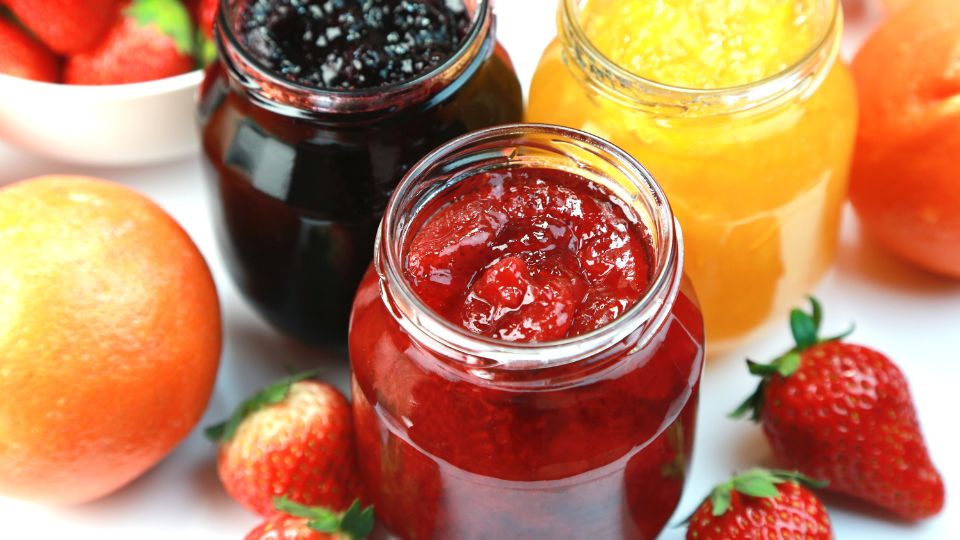
Upcycling for Sustainability
There’s more you can do to make sure your bakery is going zero-waste that isn’t just focused on food.
Being zero-waste extends to every aspect of the baking process, including packaging and presentation.
This is where you can upcycle some potential waste!
Investing in Reusable Solutions
Whilst trying to get your bakery to be more sustainable, every decision matters!
Consider investing in reusable items like cloth napkins that replace disposable paper towels, or biodegradable takeaway containers that are more eco-friendly than their plastic counterparts!
Here’s some ideas we’ve found on how you can reduce waste at your bakery:
- Reusable Baking Equipment:
Instead of using disposable parchment paper or aluminium foil, invest in durable, reusable baking mats or silicone baking sheets.
These alternatives not only reduce waste but also save money in the long run.
- Reusable Decorations:
Rather than relying on single-use decorations like plastic sprinkles or paper cake toppers, consider investing in reusable alternatives.
This could include metal or silicone molds for fondant decorations that can be used repeatedly, or edible decorations made from natural ingredients.
- Reusable Coffee Cups:
If your bakery offers coffee or other beverages, encourage customers to bring their own reusable cups by offering a discount or loyalty programme.
Additionally, consider selling branded reusable cups or mugs that customers can purchase and refill with their favourite drinks.
- Reusable Utensils:
Instead of providing disposable plastic utensils for customers to use with their take-out orders, offer reusable options made from bamboo, stainless steel, or other sustainable materials.
Consider partnering with suppliers who offer compostable or biodegradable utensils as well.
- Bulk Ingredient Dispensers:
A great way to sell off unused ingredients in your bakery is sell them in bulk back to your customers!
Set up dispensers that your customers can use to get flour, sugar, spices, nuts and anything else you no longer need.
- Compostable Packaging:
If reusable packaging isn’t feasible for certain products, opt for compostable packaging made from materials like plant-based plastics or paperboard.
Make sure to educate customers on proper disposal methods to ensure the packaging ends up in composting facilities rather than landfills.
- Upcycled Furniture and Decor:
Furnish your bakery with furniture and decor made from upcycled or repurposed materials.
This could include tables made from reclaimed wood, chairs refurbished with eco-friendly paint, or artwork crafted from recycled materials.
Not only does this reduce waste, but it also adds character and charm to your bakery!
- Employee Training:
Provide training to your staff on the importance of using reusable solutions and proper waste management techniques.
Encourage them to lead by example and actively participate in sustainability initiatives within the bakery.
- Community Outreach:
Engage with your local community to promote sustainability and encourage environmentally friendly practices.
Host workshops or events focused on reducing waste, and collaborate with other businesses and organisations to amplify your impact.
With trying to get your bakery closer to zero-waste, every decision, however small is a key piece of the puzzle!

Engaging Your Customers
Being transparent with your customers about your efforts to get closer to zero-waste is really important!
There’s lots of ways to engage your customers, through workshops, special menu items and more.
Here are some ideas on how you can engage your customers in your zero-waste efforts:
Be Transparent about Zero-Waste
73% of consumers say they would change their consumption behaviour to have a positive impact on the environment.
If your bakery can tap into this desire by showing consumers that you provide the most environmentally-friendly options you’ll be in a very competitive position against other bakeries and cafes in the area.
Make sure there’s vibrant signage showcasing your zero-waste initiatives, from locally-sourced ingredients to compostable packaging.
Showcase your efforts on your menu, social media platforms and your website.
Empowering Zero-Waste Choices
With more options than ever, consumers need to be persuaded to buy from your bakery in competition with others.
By clearly labelling your products and services as zero-waste or sustainably sourced, you can convince eco-concious customers to choose your products rather than others, particularly the big corporate chains!
From the morning pastry to the afternoon snack, every bite becomes an opportunity to support sustainability and make a positive impact on the planet!
Community Engagement for Zero-Waste
Sometimes it’s not enough just to advertise that your bakery is zero-waste.
Consider investing in commuity engagement and collaborating with other local suppliers!
If you can host workshops on reducing food waste or creating eco-friendly home kitchens, you encourage customers to come back, increase your brand awareness and can even generate a second revenue stream from event hosting.
By offering these educational opportunities, bakeries not only empower customers to make sustainable choices but also create a sense of community and connection.

Conclusion
By trying out our zero-waste baking tips, your bakery can become a sustainable hub in your local community.
From menu planning, to upcycling, to customer engagement, every small step you take has a hugely positive impact on the environment.
Join the conversation! Share your zero-waste baking journey on social media and tag us @WasteManaged!

